One of the most distinctive voices in rock music, that of Allan Clarke—the lead vocalist of The Hollies on all of the British band’s biggest hits—hasn’t been heard for some two decades. In 1999, having come to the realization that he could no longer sing those songs to the best of his ability, Clarke retired from the music business. He spent his time attending to family matters, away from the spotlight. “I didn’t even sing in the shower,” he said.
Other than a couple of one-off appearances—at the Hollies’ Rock and Roll Hall of Fame induction ceremony in 2010, and a surprise appearance the following year at a U.K. concert by David Crosby and fellow Hollies mate Graham Nash—Clarke stuck to his decision to give it all up. But in 2019, his situation changed and Clarke, born April 5, 1942, began working on his first new solo album in three decades, Resurgence, released that year.
In the second half of Best Classic Bands’ extensive interview with Clarke, we talk about that album and why Clarke is back. But first, we wanted to ask him about the band that gave us such classics as “Bus Stop,” “Stop, Stop, Stop,” “Carrie-Anne,” “He Ain’t Heavy, He’s My Brother,” “Long Cool Woman (In a Black Dress)” and “The Air That I Breathe.”
Clarke was happy to oblige.
Best Classic Bands: We want to ask you first about one of the Hollies’ earliest American gigs. It took place in New York City at the Paramount Theater, in 1965, and it was hosted by the children’s TV star Soupy Sales. Ring any bells for you?
Allan Clarke: “The Mouse”! That was his song. He did “The Mouse” at every show. Yes, I do remember it. We did two numbers every show, nine shows a day. It was ridiculous. It’s where we met Jimi Hendrix.
He was a member of Little Richard’s band at the time.
Yes. They threw Little Richard off the show, because he was screaming, quite rightly, that he was the king of rock and roll and he should be at the top of the bill.
Related: The story behind the Soupy Sales Paramount concerts
Watch the Hollies perform their first U.S. top 10 hit, “Bus Stop”
What do you remember in general about coming over to America that first time and having kids scream at you everywhere you went?
Well, don’t forget, we’d been watching things like that on television for years before that. When rock and roll came in, everybody was screaming at Elvis. Everybody was screaming at anybody that was in rock and roll. So we knew that that was quite available to anybody who’d gotten famous, even in England with Cliff Richard and people like that. We never thought we would ever get to the point where we would be appearing on TV and become famous. So when it actually did start happening like that, it was a bit frightening. For five years, we couldn’t hear ourselves. But coming to America…my mother used to take me to the movies when I was a child, and I always used to love going to the musicals like Seven Brides for Seven Brothers and West Side Story. And I loved them, I really did. That was the first time I’d gotten music in my bloodstream. And New York, and America, was a place where everybody was in the movies. When you’re given the opportunity to go over to New York and play in New York…We didn’t really know what to expect. When we got off the plane, we noticed there was a huge exhibition going on.
The New York World’s Fair.
That’s right. When we saw that, that was pretty wild. And then we go into New York and Times Square was just like it was in the movies. So it was really exciting. The telephone sounded the same as it did in the movies. Those are the things that I remember. The things that I remembered from my youth, they were all there and they were all real.
When the band was first starting out, there were so many other bands in England. Why do you think the Hollies were able to break out and get noticed?
I think it was the sound. When we did actually get into the studio with our recording manager, he chose good records to cover at the beginning. We hadn’t really gotten into a writing team yet. Graham and I had written things before; even before we got into the Hollies, we were writing songs, with no idea what to do with them. But when we did actually play our songs to [producer] Ron [Richards], it was, well, I’ve got a better one here; I think we should do this one first. I think the first couple of numbers were Coasters songs, and then, when we found “Just One Look,” we thought that was a great song to do. We would do other people’s songs that they wrote, like “I Can’t Let Go.” But we put the Hollies stamp on everything that we did. So even though the tunes and the music were different, I think it was the Hollies’ sound that made them a bit more different than what the song was meant to be.
That was still true when you wrote your own hits. I think what helped give you staying power was that all of your hits were so different from each other. Do you have a favorite among the Hollies’ biggest hits?
The thing that I love most is “Long Cool Woman.” I don’t know how it happened, really, but I was writing with Roger Cook at that particular time; we had written a quite a few songs. This particular song we wrote very quickly. He said, “I suppose that will get on the album, won’t it?” I played the song for the boys and they said, “Well, that’s great. That’ll go on the album. So let do it now. You play the guitars and we’ll just put bass and drums on it.” Now, our recording manager wasn’t there, so the engineer, who was a young guy, helped with the sound. But it was one of those things that instantly happened. I think we did the backing in two takes. I did the singing in one or two takes, and then afterwards [guitarist] Tony [Hicks] said, “I’ll put another guitar on top of yours, and then we’ll mix it.” Then the engineer said, “A slap echo will sound great on this.” It was one of those songs that we just thought of things and then did it.
Related: “Long Cool Woman…” admit it, you don’t know the lyrics
That song was compared by a lot of people to Creedence Clearwater Revival. Was that deliberate?
Everybody said that! Creedence was one of my favorites, so to be actually compared to them was wonderful. But they were more rock and roll than we were; they were a rock and roll band. The Hollies were never rock and roll, I don’t think. How broad can you say rock and roll is? I was born into rock and roll, and I don’t think there has been rock and roll since maybe 1965, with all the greats like Jerry Lee Lewis, Fats Domino. Those guys, to me, were truly rock and roll. We were a four-piece band, like the Beatles were a four-piece band, which was quite different from the rock and roll era.
Speaking of the early rock and rollers, there’s an Everly Brothers connection with “The Air That I Breathe.”
Oh, most certainly. I’ll tell you what happened. I walked into the recording manager’s office and the secretary there had an album of Phil Everly [Star Spangled Springer], and she said, “You must listen to this track.” As soon as I heard it, I thought, that is one of the best songs I’ve ever heard. And she said to me, “I think that you should record it.” We all loved it, and I think it’s been one of the greatest songs ever done by anybody: the chord sequences and all that. I have to say, it was Phil’s way of doing it. I tried to sing it like him, only I think I’ve got a harder voice than Phil had. It was one of those things where you get it and you put the Hollies’ stamp on it.
How did things change after Graham left the band?
Graham and I have been together forever. I gave him a lifetime achievement award [in 2019]. I just couldn’t believe that I met this guy when I was seven years old, and then you’re 77. That’s 70 years of being together. Even though we’ve been away from each other, we still keep coming back to do certain things like the Rock and Roll Hall of Fame. It was a long story of how he left and why he wanted to leave. I mean, it wasn’t something that happened overnight, but I think I chose to ignore the signs that were there because I never thought that he would. Graham fell in love with America when we got to New York for the first time; he wanted to be a part of the American music scene. I think he outgrew us, to be quite honest.
[Clarke and Nash reunited for a 2023 album.]
Why did you leave the Hollies?
Which time?
You left a few times but you always came back, until one day you finally didn’t. Did you ever regret that?
No, no, no. I’ve never regretted it, because I couldn’t sing the Hollies’ songs anymore in the way that I’d recorded them. So there was no reason for me to go out on stage and try to do it. You know, there are stories of people that are still going out and doing it and [fans are] saying, “Man, they should give up.” I didn’t want to get to that. I want people to remember me for how I could sound. I didn’t want that to be a part of my life.
How did you feel about being inducted into the Rock and Roll Hall of Fame?
I have to thank Graham for helping me out on that. He rang me and said, “You’ll never guess what.” I said, “No, tell me.” He said, “We’re going to be inducted into the Rock and Roll Hall of Fame.” And I thought, oh, wonderful, but what does that mean? I knew what it meant, but what do we have to do? And he said, “Well, they want us to do two songs, ‘Bus Stop’ and ‘Long Cool Woman.’” I said, “I don’t think that I’m going to be able to do that ’cause I’d left the group 10 years ago and I hadn’t even sung in the shower. So I said, “What I’m gonna do is look at throat specialists and see if there’s anything I could do, to do the show.” And most of the people that I went to see said, “You’re not going to hit those high notes anymore, but try something different.” Graham said to me, “Don’t worry about it. We’ll make it happen.” I didn’t know what he meant by that, but I trusted Graham. So we got on the plane, we went over there, we went to the Waldorf hotel, went to the third floor, and as I walked in there was the Paul Shaffer band, and there was the lead singer of Maroon 5 and the lead singer of Train. Graham said, “These are the guys that are going to help us.” And they certainly did. When that happened, all the stress went. I think that probably helped me a great deal. I was able to get through it without looking like a fool. I’ve never, ever taken myself seriously in my singing. I’m not the world’s best singer at all, in my mind. Sometimes, I still think that I’m a phony.
Really? Why?
I feel that I’m going to be found out one day and they’re going to say, “Well, you’re not that good.”
I think millions of people would disagree with you.
Oh, sure. But I think that goes back to the kind of life that I had growing up, and the life I had before the Hollies. You’ve been an ordinary guy, then all of a sudden you become a star, and you think, how did that happen?
But you’ve got some good memories, right?
Oh, there’s going to be a book. There’ll be lots of interesting stuff in that. I’ve met lots of people in my life that I never thought I’d ever meet. It’s like, when you were a kid and watching a film and there’s Cary Grant and 25 years later, I’m having dinner with Cary Grant. It’s just too unbelievable.
Related: Our conversation with Graham Goldman, writer behind “Bus Stop” and many other hits
You must have met all of your musical idols too.
Yes, but sometimes, like they say, don’t meet your idols because you may be disappointed. The only thing with me is that it doesn’t matter how people are acting at this particular time in their life. I will always remember them for who they were. So, when I hear “Great Balls of Fire” by Jerry Lee Lewis, and then I hear about him doing some silly stuff somewhere in the world. I just don’t take any notice because my memories are golden for me.
Now that you’ve made this new record, aptly titled Resurgence, are we going to have to wait another 30 years for your next one?
No, I’m in my office at the moment and I’m writing another song. I’ve written three already. They’re going to be a little bit different from what I’ve done. Being accepted out there again is going to be a great booster for me. I never thought this would ever happen again in my life. It must be for a reason, but I don’t know what that is.
Part two of this interview, focusing on Clarke’s unexpected comeback, is available here.
Watch the Hollies perform “Carrie-Anne” on The Smothers Brothers Show.
The Hollies’ recordings are available here. Clarke’s solo albums are here.

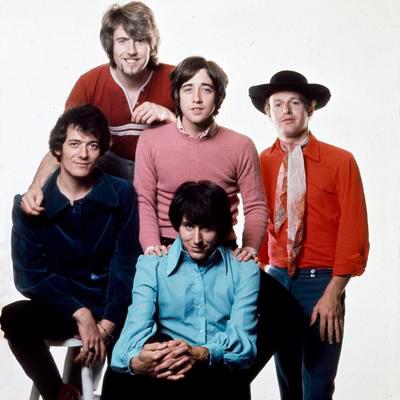
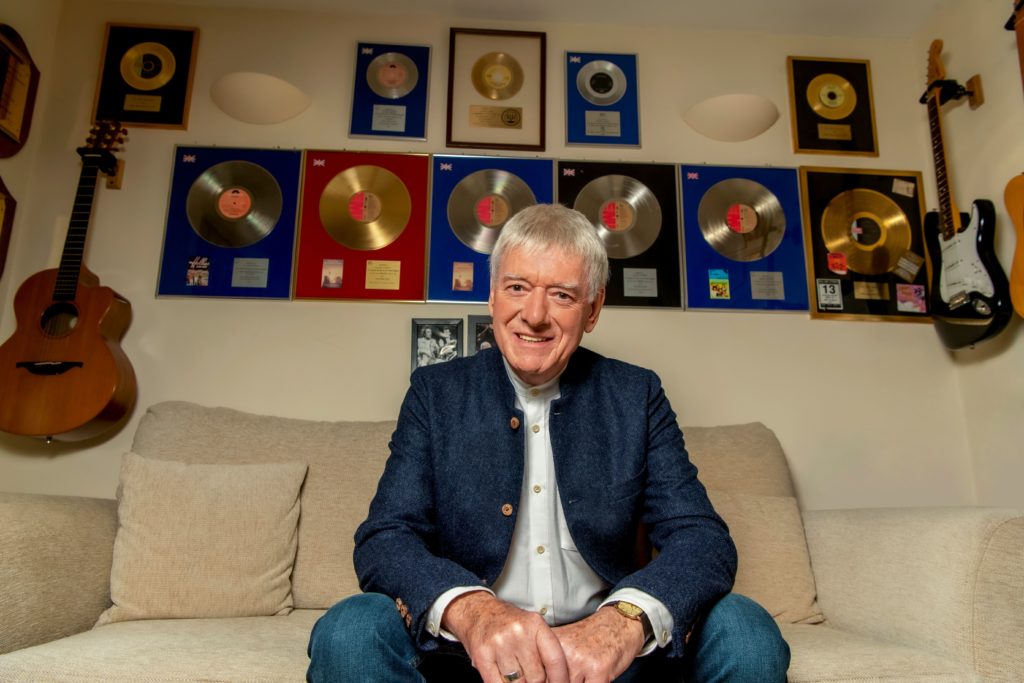

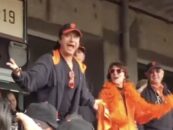
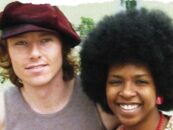
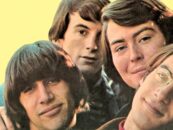
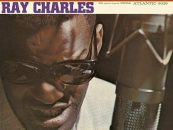

4 Comments so far
Jump into a conversationClarke’s voice was one of the best from the british invasion. I love the hollies. Great interview thank you.
Great Band! They had so many hits through out the 60s and 70s. They are one of my favorites of all time.
Great interview, Jeff! Allan has one of the most distinctive voices in the history of rock. Even with the incredible melding of Graham’s and Tony Hicks’ voices to get THAT sound, the basis of it all was Clarke’s edgy voice. I love reading that he and Nash have remained friends all these years, as that had to be huge disappointment when he left the Hollies, as he was such an integral part of their sound. Well, as we know, they survived as a somewhat different sounding band that depended on Allan’s voice more than ever. While I love what Nash did in helping to form CS&N, and I suppose it was a better platform for his songs, it’s what came from his relationship with Clarke over those early years that really stands up for me. It’s a shame the Hollies were so unreceptive to some of Graham’s later songs, to the point where he was further pushed toward joining Crosby and Stills, as the Hollies really had to change and do different types of material after Nash left anyway. One wonders what some of Nash’s later songs would have sounded like with that Hollies stamp on them.
Lots of people have never understood that the Hollies were NEVER a rock ‘n roll band. They were a POP band, and a damn good one. (By the way, “pop” is not a dirty word.) Great songs, great arrangements, killer vocals, and memorable stuff all around.